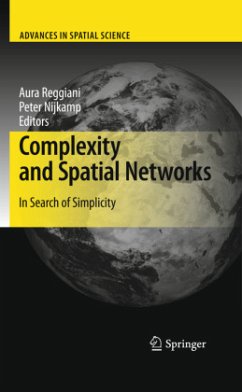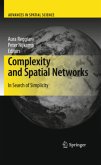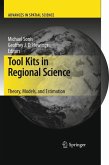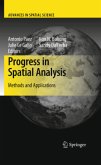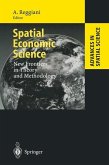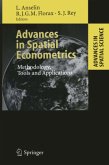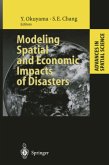Complex systems analysis has become a fascinating topic in modern research on non-linear dynamics, not only in the physical sciences but also in the life sciences and the social sciences. After the era of bifurcation theory, chaos theory, syn- getics, resilience analysis, network dynamics and evolutionary thinking, currently we observe an increasing interest in critical transitions of dynamic real-world systems in many disciplines, such as demography, biology, psychology, economics, earth sciences, geology, seismology, medical sciences, and so on. The relevance of this approach is clearly re?ected in such phenomena as traf?c congestion, ?nancial crisis, ethnic con?icts, eco-system breakdown, health failures, etc. This has prompted a world-wide interest in complex systems. Geographical space is one of the playgrounds for complex dynamics, as is witnessed by population movements, transport ?ows, retail developments, urban expansion, lowland ?ooding and so forth. All such dynamic phenomena have one feature in common: the low predictability of uncertain interrelated events occurring at different interconnected spatio-temporal scale levels and often originating from different disciplinary backgrounds. The study of the associated non-linear (fast and slow) dynamic transition paths calls for a joint research effort of scientists from different disciplines in order to understand the nature, the roots and the con- quences of unexpected or unpredictable changes in complex spatial systems.
From the reviews:
"This volume continues the history of excellent work in the Advances in Spatial Science series by gathering a broad array of research that nonetheless focuses on complex spatial networks. Stylistically, the book is solid overall ... . The book is primarily of value to researchers who are interested in complex spatial networks as applied to a broad range of socioeconomic problems. It would also be suitable as an ancillary reading for a course in complexity or socioeconomic modeling." (Dudley B. Bonsal and Steven M. Manson, Journal of Regional Science, Vol. 51 (2), 2011)
"This volume continues the history of excellent work in the Advances in Spatial Science series by gathering a broad array of research that nonetheless focuses on complex spatial networks. Stylistically, the book is solid overall ... . The book is primarily of value to researchers who are interested in complex spatial networks as applied to a broad range of socioeconomic problems. It would also be suitable as an ancillary reading for a course in complexity or socioeconomic modeling." (Dudley B. Bonsal and Steven M. Manson, Journal of Regional Science, Vol. 51 (2), 2011)

